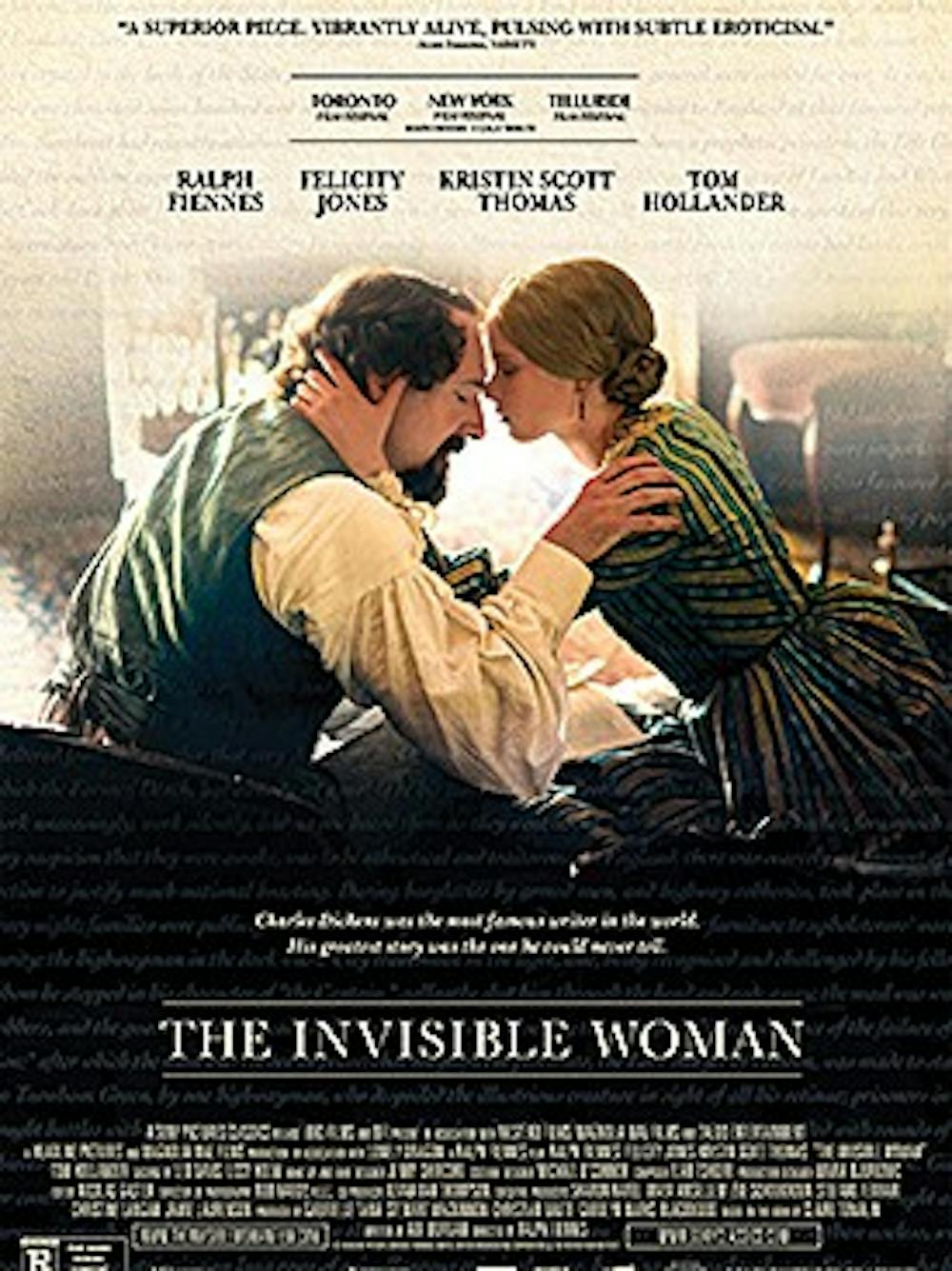The Invisible Woman
??1/2
The tragic and clandestine personal life of Charles Dickens is shown in Ralph Fiennes’ “The Invisible Woman.” Though visually attractive, the film lacks storyline-related clarity as well as proper character development.
In the film and in real life, Dickens risked everything to be with actress Nelly Ternan but the proper spark is missing in Fiennes’ and Felicity Jones’ on-screen romance.
In 1857, Dickens, 45, met the 18-year-old Ternan and a long-time, forbidden affair ensued.
Dickens, married and the father of nine children, was forced to live his life with Ternan hidden away from the public, who adored him. Infatuated with his throngs of fans, Dickens struggled with the anonymity he was forced to embrace because of his love for Ternan.
“The Invisible Woman” is told non-linearly. The film’s setting jumps from the progression of the forbidden affair to 1885 — years after Dickens’ death when Ternan is married to another and is a mother attempting to gain closure.
The hurting Ternan in 1885 takes a lot of brisk, reflective walks on the beach near her home.
These pensive beach scenes, like the rest of the film, are beautiful to look at but are very long and uneventful. “The Invisible Woman,” as a whole, feels very Victorian.
Though this makes sense historically, it makes for a less than exhilarating hour and 51 minutes in a theater.
The film’s lack of action is contrasted with strong acting. Lord Voldemort is nowhere to be found in Fiennes’ charming and complex performance as Dickens.
Also notable is Joanna Scanlan’s role as Catherine, Dickens’ wife.
Unloved, abandoned, embarrassed and viewed as largely uninteresting, Catherine’s character is a tragic one. Scanlan does a wonderful job of making Catherine incredibly appealing.
Though cast off as a simple woman by her husband, Catherine is strong. Dickens breaks off their marriage by writing a letter in The Times but the audience ends up pitying Dickens, not Catherine.
“The Invisible Woman” shares the complicated true story of the life behind the celebrated author. Though slow at times, the film does well with what it sets out to do.
Charles Dickens wrote in one of his best-known masterpieces, “A Tale of Two Cities,” ”A wonderful fact to reflect upon, that every human creature is constituted to be that profound secret and mystery to every other.”
This passage is quoted in the movie, and fittingly so: Not only does the film tell a tale of two Dickens, but “The Invisible Woman” brings to light the facts that surely inspired much of Dickens’ fiction.
— Tess Boyle
To get the day's news and headlines in your inbox each morning, sign up for our email newsletters.




